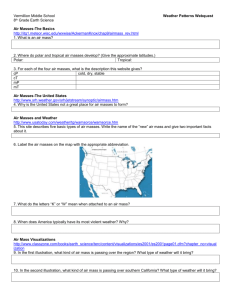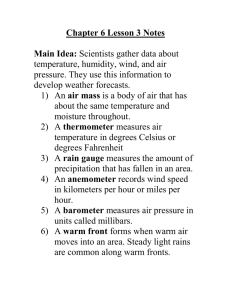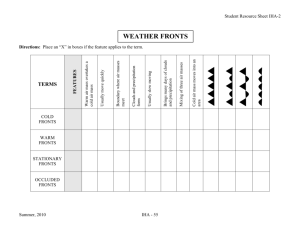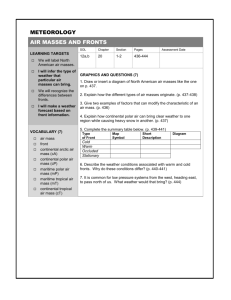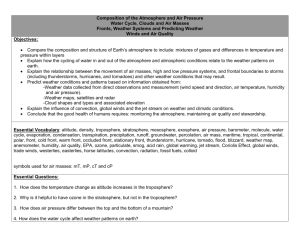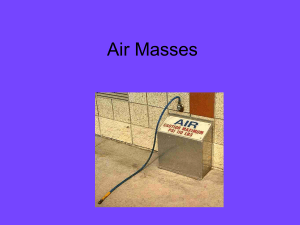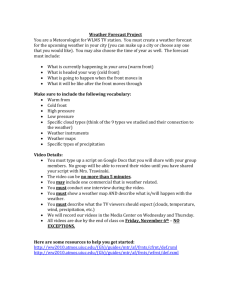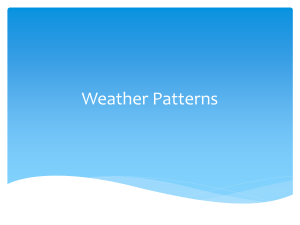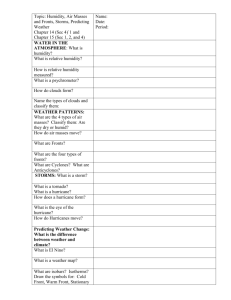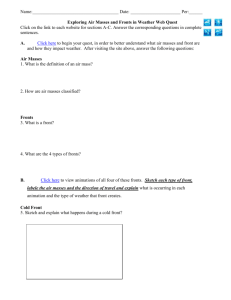SES5 Aligned Resources
advertisement
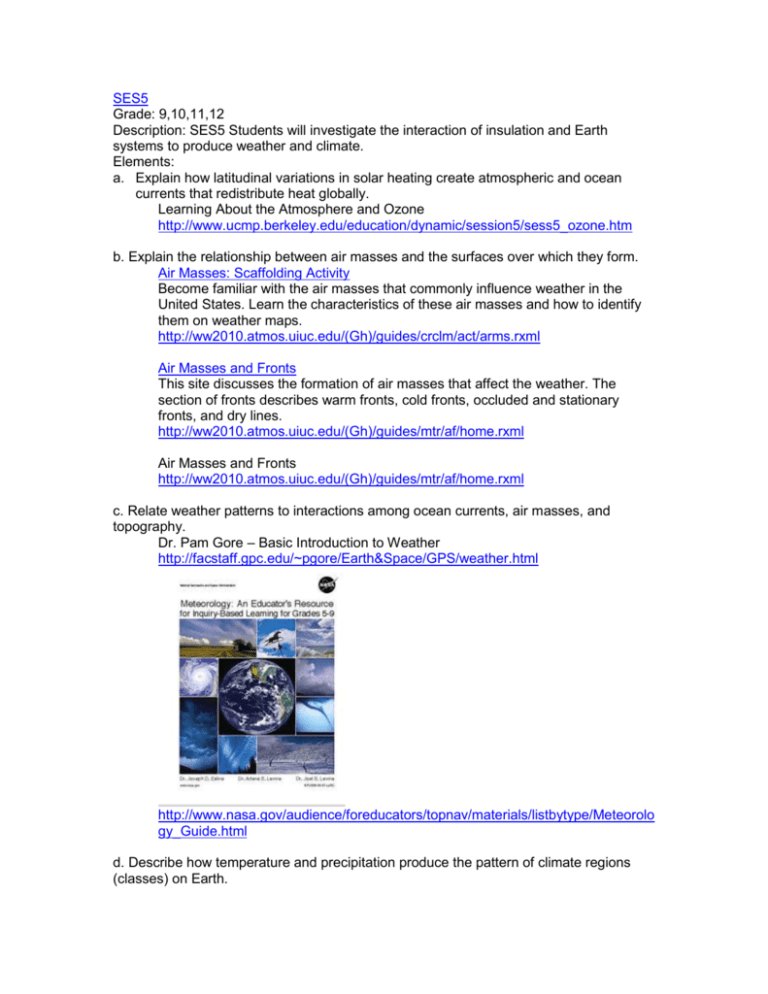
SES5 Grade: 9,10,11,12 Description: SES5 Students will investigate the interaction of insulation and Earth systems to produce weather and climate. Elements: a. Explain how latitudinal variations in solar heating create atmospheric and ocean currents that redistribute heat globally. Learning About the Atmosphere and Ozone http://www.ucmp.berkeley.edu/education/dynamic/session5/sess5_ozone.htm b. Explain the relationship between air masses and the surfaces over which they form. Air Masses: Scaffolding Activity Become familiar with the air masses that commonly influence weather in the United States. Learn the characteristics of these air masses and how to identify them on weather maps. http://ww2010.atmos.uiuc.edu/(Gh)/guides/crclm/act/arms.rxml Air Masses and Fronts This site discusses the formation of air masses that affect the weather. The section of fronts describes warm fronts, cold fronts, occluded and stationary fronts, and dry lines. http://ww2010.atmos.uiuc.edu/(Gh)/guides/mtr/af/home.rxml Air Masses and Fronts http://ww2010.atmos.uiuc.edu/(Gh)/guides/mtr/af/home.rxml c. Relate weather patterns to interactions among ocean currents, air masses, and topography. Dr. Pam Gore – Basic Introduction to Weather http://facstaff.gpc.edu/~pgore/Earth&Space/GPS/weather.html 8http://www.nasa.gov/audience/foreducators/topnav/materials/listbytype/Meteorolo gy_Guide.html d. Describe how temperature and precipitation produce the pattern of climate regions (classes) on Earth. Storm Warnings A new device onboard two NASA satellites could improve 3 to 12-hour forecasts of severe weather storm warnings. http://www.firstscience.com/SITE/ARTICLES/storm-warnings.asp : An Educator's Resource for Inquiry-Based Learning for Grades 5-9 NASA: Investigating the Climate System - Explore Earth temperatures and what affects them in this module for 9-12. http://www.nasa.gov/audience/foreducators/topnav/materials/listbytype/ICS_Ener gy.html NASA - The CERES S'COOL Project http://science-edu.larc.nasa.gov/SCOOL/index.php Students' Cloud Observations Online is a project that involves school children in real science. Students provide ground truth measurements and learn about clouds and climate. The project is recommended for upper elementary through high school. e. Describe the hazards associated with extreme weather events and climate change (e.g., hurricanes, tornadoes, El Niño/La Niña, global warming). NASA "Lifecycle of a Hurricane" Video 09.09.08 - Most tropical hurricanes begin in Africa, but an El Nino can stop the storms before they become full-blown. Global Warming: http://www.esa.org/education/edupdfs/globalclimatechange.pdf The Greenhouse Effect Activity http://www.planetguide.net/cool/greenhouse_activity.html Global Warming Tutorial: http://chemistryland.com/CHM107/GlobalWarming/GlobalWarming.html Climate Change http://www.ecn.ac.uk/Education/climate_change.htm Shrinking Artic Sea http://news.nationalgeographic.com/news/2007/12/071214-warming-arctic.html Global Warming information http://weathereye.kgan.com/expert/warming/index.html Tornados http://www.windows.ucar.edu/tour/link=/earth/Atmosphere/tornado/formation.html Thunderstorms http://www.windows.ucar.edu/tour/link=/earth/Atmosphere/tstorm/tstorm_formation.html Tornado Chaser http://www.tornadochaser.net/tornado.html tornados Visualizations and Animations http://serc.carleton.edu/NAGTWorkshops/health/visualizations/tornados.html Aligned Resources - GA Approved (6) Ask a Geologist Cloud in the Bottle Global Climate Change The Physical Environment The Researcher's Description Why Tides?
